2. AI and IoT Applied Electronics Specialization

General Objective
- The undergraduate program in Telecommunication Electronics Engineering (Aerospace) is designed to equip students with comprehensive, fundamental, and modern knowledge, ensuring that graduates can effectively perform the duties of an engineer in the field of Telecommunication Electronics and adapt to the continuous development of technology in the industry.
- After graduation, students can work in telecommunications electronics companies within the aerospace industry and other technical-economic sectors. Outstanding students may also pursue teaching positions at universities or work in research institutes.
- Have a foundational knowledge of electrical circuits, embedded systems, wireless communication, and digital signal processing.
- Be well-versed in Artificial Intelligence (AI) and the Internet of Things (IoT) for developing smart applications.
- Master modern communication technologies such as 5G, optical networks, wireless communication, and cloud computing.
- Know how to integrate AI into signal processing, data analysis, computer vision, and automation.
- Capable of designing and optimizing telecommunications systems, communication networks, and IoT systems.
- Analyze and process digital signal data, applying AI in telecommunications and industrial electronics.
- Skilled in using technical software such as MATLAB, Simulink, Python, LabVIEW, ADS, etc.
- Develop research skills, creative thinking, and problem-solving abilities for real-world applications in the industry.
- Enhance teamwork, communication, presentation, and technical report writing skills.
- Cultivate the ability to work independently, self-learn, and stay updated with new knowledge.
- Develop a professional work attitude, innovative thinking, and creativity.
- Cultural Knowledge: Have a solid grasp of Vietnamese culture and the cultures of other countries.
- Natural Science, Informatics, and Foreign Language Knowledge: Apply natural sciences to professional fields, be proficient in office and specialized informatics, possess a basic informatics application certificate, and achieve a B1 level in foreign language proficiency according to Vietnam’s six-level competency framework.
- Covers principles of communication, computer networks, digital signal processing, wireless communication, and IoT.
- Equips students with the ability to analyze, design, and apply electronic-telecommunications and artificial intelligence technologies in practical applications.
+ Master telecommunications systems, communication networks, optical communication, 5G networks, and cloud computing.
+ Apply AI in optimizing telecommunications networks, digital signal processing, and system security.
+ Develop intelligent communication systems, automated monitoring, and telecom data analysis.
- Applied Electronics with AI & IoT Major
+ Design and program embedded systems, microcontrollers, and sensors for IoT applications.
+ Apply AI in sensor data analysis, process optimization, and computer vision.
+ Develop IoT security solutions, edge computing, and smart systems for Industry 4.0.
- Presentation & Vietnamese Writing: Fluent, confident communication; accurate and professional document drafting.
- English Communication & Writing: Clear and concise public speaking; proper writing of short documents; ability to read and comprehend work-related English materials.
- Problem-Solving: Apply knowledge of natural and social sciences to analyze and resolve professional tasks.
- International Integration: Engage effectively with international partners and colleagues, enhancing work efficiency.
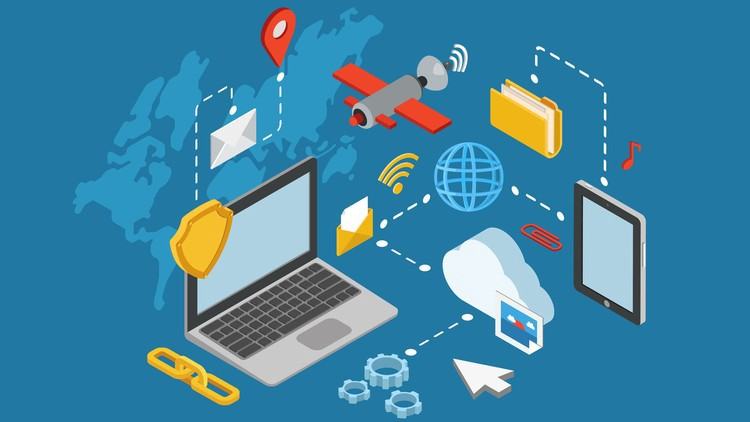
- No Criminal Responsibility or Disciplinary Action: The student must not be under criminal investigation or disciplinary action (such as suspension) at the time of graduation review.
- Completion of Required Coursework: The student must have completed all required courses as per the university program for their major, with no outstanding coursework; the cumulative GPA for the entire course must be at least 2.00.
- National Defense and Security Education Certificate: The student must have a certificate in national defense and security education and certification of participation in the student orientation week as prescribed by the Vietnam Aviation Academy.
- Language Proficiency:
+ Foreign languages (English, Chinese, French, German, Russian, Korean, Japanese): The student must have language proficiency at level 3 (B1) according to the 6-level foreign language proficiency framework of Vietnam or an equivalent standard.
+ Information Technology: No specific IT requirements.

- Possess ethical qualities, professional ethics, a sense of civic responsibility, and an understanding of living and working according to the law, following the standards of Decision No. 50/2007/QĐ-BGD&ĐT of the Ministry of Education and Training.
- Maintain humility and simplicity, uphold a clean and healthy lifestyle. Be careful and responsible at work, with a continuous effort to improve professional expertise.
- Respect the law and fulfill civic duties and responsibilities.
- Maintain sufficient health to work in the professional field.
- Have fundamental knowledge and skills in military affairs and national defense participation.

- Electronics & Telecommunications with AI Major:
+ Telecommunications Engineer
+ Network and Communication Systems Engineer
+ AI Application Developer in Telecommunications
+ Digital Signal Processing Engineer
+ Cloud Computing and 5G Network Specialist
+ Applied Electronics with AI & IoT Major:
- Embedded Systems Engineer
+ IoT Solution Developer
+ AI Application Engineer in Automation
+ Smart Devices and Robotics Engineer
+ Industrial Automation and Control Engineer
THE DIPLOMA AWARDED UPON GRADUATION
- Bachelor of Electronics and Telecommunications Engineering Technology (120 Credits)
- Engineer of Electronics and Telecommunications Engineering Technology (150 Credits)
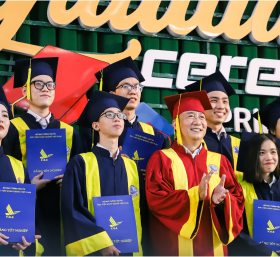
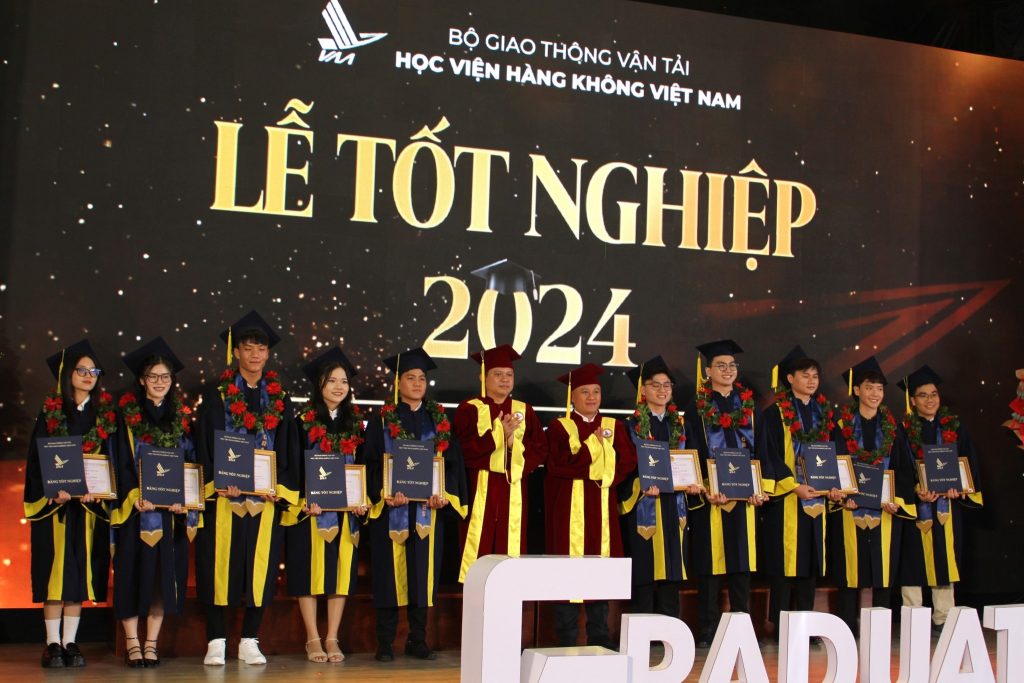
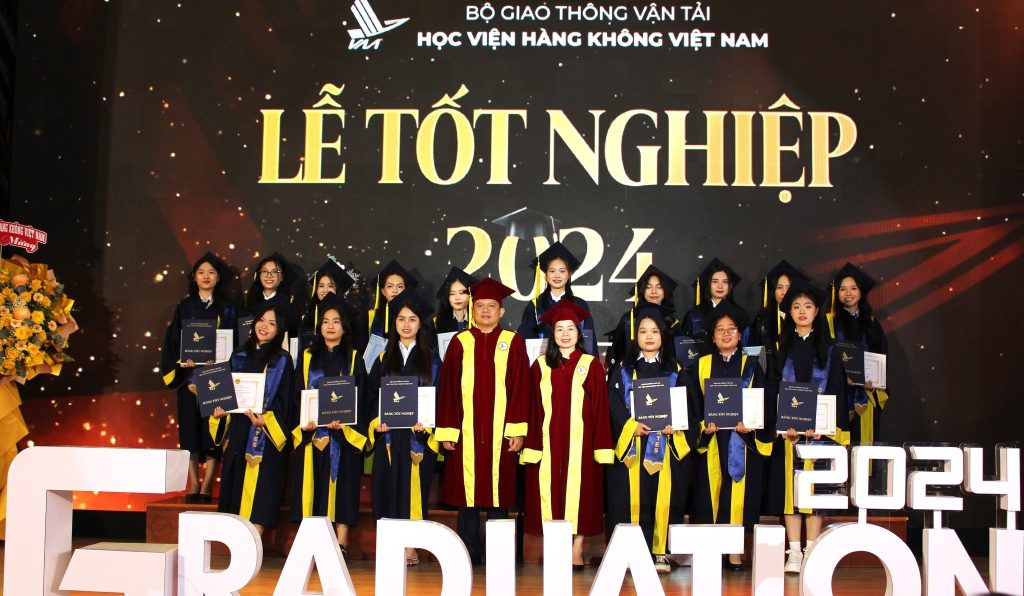
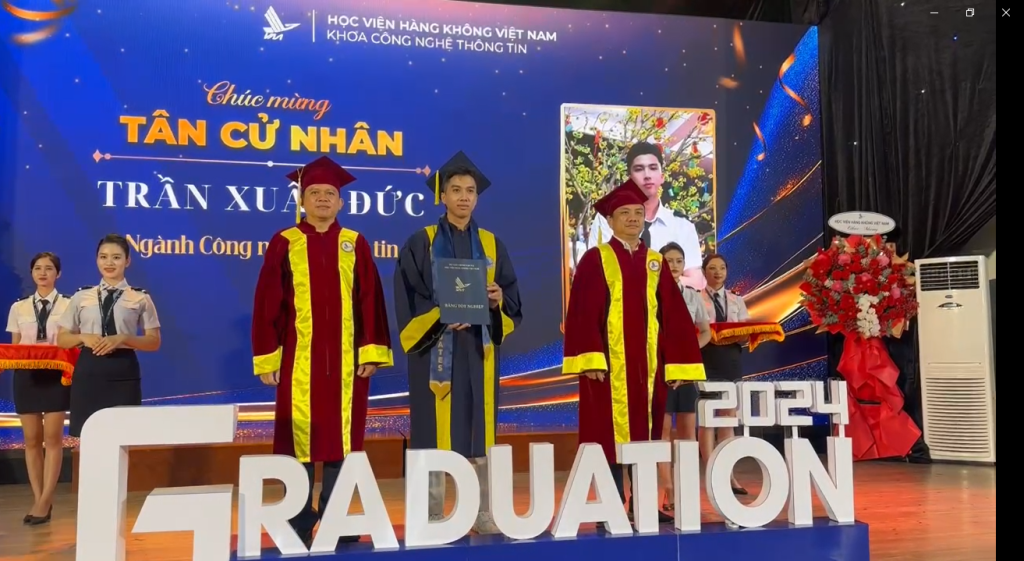

Training Program
150 credits (excluding Physical Education and National Defense Education courses).
- Training Program in Vietnamese: 2020, 2021, 2022, 2023
- Training Program in English: Link
- Framework Program: Class 24 and later
- Department of Electrical and Electronics Engineering Website: https://feee-vaa.edu.vn/





